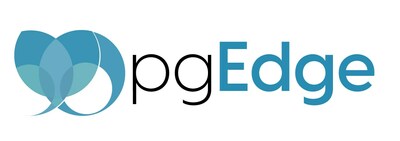New Survey Shows Strong Demand for High Availability as Businesses Increasingly Use PostgreSQL in Mission-Critical Applications and to Alleviate Cloud Outage Concerns
SOURCE pgEdge
Targeted pgEdge survey details uptime requirements, and the rising need for distributed Postgres
ALEXANDRIA, Va., July 10, 2025 /PRNewswire/ -- pgEdge, Inc., the leading company dedicated to distributed Postgres, today announced a new survey focused on how technology decision-makers manage critical business processes amidst cloud service outages. The survey concentrates on technology leaders' high availability strategies, downtime tolerance, use of failover tools, and readiness to adopt distributed database architectures.
Consequential outages occur frequently, bringing risks of data loss, missed business opportunities, inferior customer service, and reputational damage to an organization. The new survey, commissioned by pgEdge and conducted in partnership with The Foundry, set out to gain an understanding of how mid-to-senior IT leaders at SaaS companies and large enterprises are using PostgreSQL for their mission-critical applications.
This survey highlights the challenges technology leaders face when trying to strike the right balance between low cost and high availability to protect their businesses and overcome cloud service or system outages, with PostgreSQL proving to be a viable solution to address these essential needs. Some of the key takeaways include:
- 91% of organizations currently using PostgreSQL demand no more than 4 minutes of downtime per month (99.99% uptime) for their applications powered by this open-source database, and 24% aim for less than 30 seconds. This is a critical indicator that PostgreSQL is capable of supporting operations with significant performance and reliability requirements.
- While 21% have experienced an outage firsthand in the last year, 82% expressed at least some level of concern about a cloud region failure, underscoring broad recognition of the risks involved.
- 79% of respondents are either evaluating (29%) or considering/piloting (50%) a distributed or purpose-built high availability PostgreSQL solution in the next 12 months, signaling robust demand in the near-term and a prime market opportunity for deploying pgEdge Distributed PostgreSQL.
How and Where PostgreSQL is Deployed
Accentuating its maturity in both integrated and front-line use cases, more than half of respondents (51%) describe utilizing PostgreSQL as part of a hybrid database environment, while 35% depend on it as the principal database for customer-facing applications.
In terms of the most prevalent current deployment stage, more than two-thirds of IT leaders are actively running PostgreSQL in production, with 37% using it for mission-critical applications and 30% standardizing it across most workloads. This deployment data highlights PostgreSQL's maturity and strategic importance.
Organizations take different approaches to achieving high availability for PostgreSQL workloads, with 58% relying on read replicas and automated failover within a single region while nearly half (47%) are already deploying PostgreSQL across multiple cloud regions with multi-master replication. Only 5% report having no strategy in place.
Avoid Downtime Impacts and Embrace PostgreSQL Benefits
There are a myriad of ramifications for businesses that exceed their maximum downtime goals. Among respondents who experienced downtime beyond their thresholds1, 56% faced delayed business operations or workflows, while others cited damage to brand trust (40%), experienced support spikes (49%), and required emergency remediation (47%)-spotlighting the acute need for resilient database architectures. Notably, zero respondents reported "no impact."
On the flipside to undesired downtime outcomes, organizations experience an array of benefits when using a high availability or distributed PostgreSQL solution. Increased uptime / zero-downtime operations led the survey results at 53%, with cost savings compared to proprietary databases, at 36%, rounding out the value proposition.
A Who's Who of the Survey Respondents
So who, exactly, responded to the survey about using PostgreSQL at their organization?
75% of survey respondents (noting a base of 212 IT decision-makers across enterprises with 500+ employees) list their functional role as IT / Networking / Security, with 12% at the C-level (CIO / top IT executive / Chief Data Scientist). Three-quarters (75%) report that their companies are currently using PostgreSQL in development / testing, highlighting the practical need for these solutions to manage business processes.
The company size of respondents varied, with 25% in the 1,000 - 2,499 employee range and 12% employing 10,000 or more people. This shows that there is a common need for high availability strategies and failover tools among small, midsize, and large enterprises alike. The top three industries represented (69% of all respondents) were financial services (including banking, securities and insurance), software and computing, and manufacturing.
"IT leaders are increasingly concerned with downtime for mission-critical applications and the risks of cloud region failure impacting their business," said Phillip Merrick, Co-founder and CEO of pgEdge. "These survey results bolster our view of the PostgreSQL landscape and pgEdge's prime position to meet enterprise demand with our multi-master, distributed architecture."
Read the full Postgres high availability survey, here.
About pgEdge
pgEdge, the leading company dedicated to distributed Postgres, is on a mission to make it easy for developers to build and deploy highly distributed database applications across global networks. Founded by industry veterans with decades of PostgreSQL expertise, pgEdge is headquartered in Northern Virginia. Its customers include prominent enterprises such as Bertelsmann, Qube Research & Technologies (QRT), Jobot, European Parliament, and several U.S. government agencies. pgEdge's investors include Rally Ventures, Sands Capital Ventures, Grotech Ventures, Sand Hill East, Akamai Technology Inc., and QRT.
For more information, visit www.pgedge.com.
1 Small sample size. Directional data only.

©PR Newswire. All Rights Reserved.
Information contained on this page is provided by an independent third-party content provider. XPRMedia and this Site make no warranties or representations in connection therewith. If you are affiliated with this page and would like it removed please contact [email protected]


